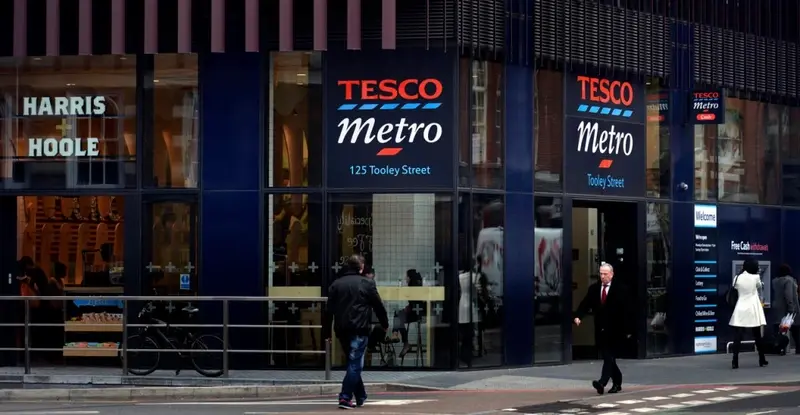
Shares in supermarket giant Tesco (TSCO) dropped 3.3% to 217p in early trade as investors brushed aside a £5bn special dividend payout and focused instead on a fall in headline earnings for the year ended 29 February.
Pre-tax profits for the last year were £1.32bn compared with £1.62bn the previous year, even though revenues increased from £63.9bn to £64.8bn as UK shoppers raced to stock up in the early phases of the coronavirus crisis.
SALES AND MARGIN UPLIFT
Sales in the UK and Ireland, including online, were 0.2% higher at £44.9bn, while sales in Central Europe were 10% lower at £5.3bn and sales in Asia were flat at £5.2bn.
According to chief executive Dave Lewis, ‘in the first few weeks of the crisis, significant panic buying (c.30% uplift in the UK) cleared the supply chain of certain items. This has now stabilised across the Group and more normal sales volumes are being experienced.’
The stockpiling was driven by a small number of customers, with as few as 10% of shoppers accounting for more than 30% of sales.
Demand for tinned vegetables and dried pasta doubled while hand sanitiser sales almost quadrupled.
Despite the small increase in UK sales, operating profits increased almost 17% to £2.18bn, a margin of 4.2%, the highest for many years.
FORWARD GUIDANCE
The firm said that ‘whilst the full financial impact of the crisis for 2020/21 is impossible to predict with a high degree of certainty, we have considered a range of scenarios to understand potential outcomes on our business and plan appropriately.’
As such there is no official financial guidance for the coming year, but ‘if customer behaviour were to return to normal by August it is likely that the additional cost headwinds incurred in our retail operations would be largely offset by the benefits of food volume increases, twelve months' business rates relief in the UK and prudent operations management.’
Putting that into numbers, under Tesco’s base case - that sales return to normal by August - it would incur £650m of additional costs, mostly in increased store and payroll costs (estimated at £105m and £280m respectively). Business rate relief would be £585m, leaving Tesco ‘wiggle room’ to make up the £65m difference.
In its worst-case scenario where more restrictions are imposed on customers for an extended period, additional costs could rise to £925m with extra store costs topping £200m and staff costs topping £400m.
DIVIDEND CHEER
On a more positive note, the cash raised from the $10.6bn sale of the Thai and Malaysian operations will be used to eliminate the current £2.5bn pension deficit and to pay a £5bn special dividend.
Also, unlike a growing number of FTSE companies, Tesco has maintained its final 2019/20 dividend taking the annual amount to 9.15p per share, representing a 50% payout ratio and an increase of 58.6% on the previous year.
The dividend will be paid on 3 July to shareholders registered by the close of business on 22 May.
It also plans to pay out 50% of this year's earnings in dividends, with the interim dividend amounting to 35% of the prior year’s full dividend, amounting to roughly 3.2p per share.





